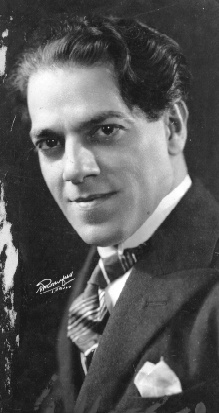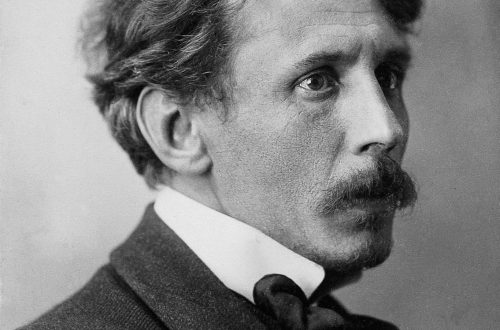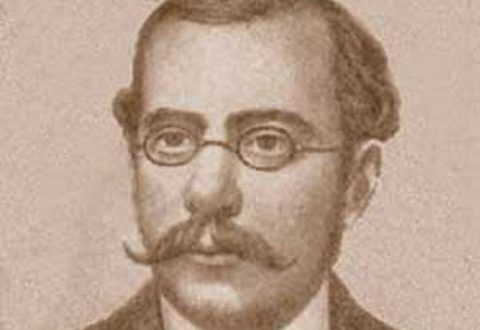
Heitor Villa-Lobos |
Hector Villa-Lobos
Vila Lobos remains one of the great figures of contemporary music and the greatest pride of the country that gave birth to him. P. Casals
The Brazilian composer, conductor, folklorist, teacher and musical and public figure E. Vila Lobos is one of the largest and most original composers of the XNUMXth century. “Vila Lobos created national Brazilian music, he aroused a passionate interest in folklore among his contemporaries and laid a solid foundation on which young Brazilian composers were to erect a majestic Temple,” writes V. Maryse.
The future composer received his first musical impressions from his father, a passionate music lover and a good amateur cellist. He taught young Heitor how to read music and how to play the cello. Then the future composer independently mastered several orchestral instruments From the age of 16, Vila Lobos began the life of an itinerant musician. Alone or with a group of itinerant artists, with a constant companion – a guitar, he traveled around the country, played in restaurants and cinema, studied folk life, customs, collected and recorded folk songs and melodies. That is why, among the great variety of the composer’s works, a significant place is occupied by folk songs and dances arranged by him.
Unable to get an education in a musical school, not meeting the support of his musical aspirations in the family, Vila Lobos mastered the basics of professional composer skills mainly due to his great talent, perseverance, dedication, and even short-term studies with F. Braga and E. Oswald.
Paris played an important role in the life and work of Vila Lobos. Here, since 1923, he improved as a composer. Meetings with M. Ravel, M. de Falla, S. Prokofiev and other prominent musicians had a certain influence on the formation of the composer’s creative personality. In the 20s. he composes a lot, gives concerts, always performing every season in his homeland as a conductor, performing his own compositions and works by contemporary European composers.
Vila Lobos was the largest musical and public figure in Brazil, he contributed in every possible way to the development of its musical culture. Since 1931, the composer has become a government commissioner for music education. In many cities of the country, he founded music schools and choirs, developed a well-thought-out system of musical education for children, in which a large place was given to choral singing. Later, Vila Lobos organized the National Conservatory of Choral Singing (1942). On his own initiative, in 1945, the Brazilian Academy of Music was opened in Rio de Janeiro, which the composer headed until the end of his days. Vila Lobos made a significant contribution to the study of the musical and poetic folklore of Brazil, creating a six-volume “Practical Guide for the Study of Folklore”, which has a truly encyclopedic value.
The composer worked in almost all musical genres – from opera to music for children. Vila Lobos’ vast heritage of over 1000 works includes symphonies (12), symphonic poems and suites, operas, ballets, instrumental concertos, quartets (17), piano pieces, romances, etc. In his work, he went through a number of hobbies and influences, among which the influence of impressionism was especially strong. However, the best works of the composer have a pronounced national character. They summarize the typical features of Brazilian folk art: modal, harmonic, genre; often the basis of his works are popular folk songs and dances.
Among the many compositions of Vila Lobos, 14 Shoro (1920-29) and the Brazilian Bahian cycle (1930-44) deserve special attention. “Shoro”, according to the composer, “is a new form of musical composition, synthesizing various types of Brazilian, Negro and Indian music, reflecting the rhythmic and genre originality of folk art.” Vila Lobos embodied here not only a form of folk music making, but also a cast of performers. In essence, “14 Shoro” is a kind of musical picture of Brazil, in which the types of folk songs and dances, the sound of folk instruments are recreated. The Brazilian Bahian cycle is one of the most popular works by Vila Lobos. The originality of the idea of all 9 suites of this cycle, inspired by the feeling of admiration for the genius of J.S. Bach, lies in the fact that there is no stylization of the music of the great German composer in it. This is typical Brazilian music, one of the brightest manifestations of the national style.
The works of the composer during his lifetime gained wide popularity in Brazil and abroad. Nowadays, in the homeland of the composer, a competition bearing his name is systematically held. This musical event, becoming a true national holiday, attracts musicians from many countries of the world.
I. Vetlitsyna





